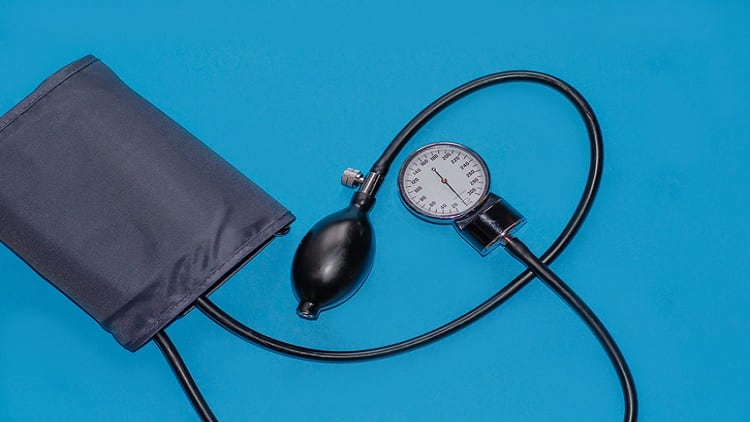However, there was no significant effect seen on fasting blood sugar (FBS), triglyceride (TG), and high-density lipoprotein-cholesterol (HDLc) when comparing the intervention and placebo groups.
L-carnitine is a non-protein amino acid found in meat, fish, milk, and dairy products. It plays a role in lipid metabolism by transporting long-chain fatty acids into the mitochondria and is a popular supplement for weight loss and fat burning.
The meta-analysis, published in Nutrients, was conducted by researchers from the Sungshin Women’s University and Gyeongin Regional Korea FDA.
Said to be the first meta-analysis to investigate the effect of L-carnitine supplementation on the biomarkers of metabolic syndromes, the analysis examined nine RCTs that were published before February this year.
The researchers searched for the RCTs from a number of databases, including PubMed, EMBASE, Cochrane, and CINAHL.
An RCT was included in the analysis if it examined at least one of the biomarkers, including waist circumference, blood pressure, FBS, TG, or HDLc.
Eventually, nine RCTs conducted in Iran, Italy, China, and Japan involving a total of 508 participants were included in the meta-analysis.
The participants had underlying health conditions, including diabetes, non-alcoholic steatohepatitis, knee osteoarthritis, or were undergoing hemo-dialysis.
In the RCTs studied, the dose of L-carnitine administered varied between 0.75g/day and 3g/day for eight to 24 weeks.
Most of the interventions lasted for 12 weeks and most require the subjects to take in L-carnitine at a dose of 2g/day.
The meta-analysis showed that L-carnitine supplementation could significantly reduce waist circumference.
Involving 155 subjects, two of the nine RCTs showed that there was a mean difference of 1.89cm in the waist circumference between the intervention and control group.
There was also two RCTs with a total of 66 participants which showed that L-carnitine supplementation was related to a mean decrease in systolic blood pressure by 7.41mmHg.
The analysis was supported by grant from the National Research Foundation of Korea grant.
Changes from baseline
The intake of L-carnitine did not lead to a significant difference in the fasting blood sugar, triglycerides, and high-density lipoprotein-cholesterol between the intervention and placebo groups.
Yet, a significant change was seen in the fasting blood sugar level before and by the end of the study in the intervention group.
For instance, in four of the RCTs involving 321 subjects, the level of fasting blood sugar dropped by 10.74mg/dL, a significant change where p was less than 0.05.
Dosage levels
Another finding was that a higher dose of L-carnitine was more effective in reducing fasting blood sugar and triglycerides levels.
As seen from three RCTs where the intervention was at least one gram of L-carnitine per day, there was a mean drop of 11.41 in fasting blood sugar level (p-value of less than 0.0001).
Whereas in another two RCTs where the intervention was less than one gram of L-carnitine per day, there was a mean increase of 0.89 in fasting blood sugar level.
Similarly, at least one gram of L-carnitine per day reduced triglycerides level by 29.85 (p-value of 0.05), while a dose of less than one gram only saw triglycerides level dropped by 3.8.
“In the subgroup analysis based on L-carnitine dose, when the treatment dose was more than 1 g/d, fasting blood glucose, triglycerides, and high-density lipoprotein-cholesterol were significantly improved.
“However, when the L-carnitine dose was under 1 g/d, there was no change. These results suggest that at least 1 g/d of L-carnitine should be consumed to improve metabolic syndrome biomarkers,” the researchers said.
However, the supplementation of L-carnitine at five gram or more per day has been reported to side effects such as diarrhoea.
This is also linked to the production of trimethylamine-N-oxide, which in turn leads to an increased risk of atherosclerosis.
The researchers cautioned that a dosage of two to three grams of L-carnitine per day is recommended.
More evidence in Koreans needed
The researchers said there was a lack of scientific evidence to support the appropriate dosage levels of L-carnitine amongst Koreans.
For instance, there was not enough information on the daily intakes in Koreans, dose–response results, or a comparison of intakes and body stores.
Moreover, as L-carnitine is a non-essential nutrient, the National Health & Medical Research Council has also not considered a dietary reference intake for the nutrient.
On the other hand, the researchers also pointed out a number of limitations of the meta-analysis.
One of which was that they only investigated the association between synthetic L-carnitine supplements, without considering sources from food, and the biomarkers of metabolic syndrome.
Source: Nutrients
L-Carnitine’s Effect on the Biomarkers of Metabolic Syndrome: A Systematic Review and Meta-Analysis of Randomized Controlled Trials
https://doi.org/10.3390/nu12092795
Authors: Myoungsook Lee and et al


